Kindle Fire HD is bad for Android, worse for iPad
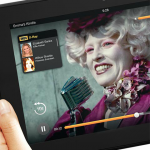
Google is in a tough spot. Apple suddenly looks like an ally now that Amazon has unveiled Kindle Fire HD. Both companies stand to lose big time should the tablet achieve any meaningful sales success. Google Play doesn't offer strong enough ecosystem to battle with either iPad or Kindle Fire, but Amazon's tablet is more likely to scorch Android's earth. Amazon's vertical integration -- store, software and services -- is tight, as good as Apple's and in many respects superior. No matter which wins, Android loses.
Here's the problem: Only Amazon has done any meaningful Android customization on tablets, creating a curated experience similar to Apple's. Like iOS, Amazon Android is tightly vertically and horizontally integrated with siloed services. Kindle Fire is designed to mainly work within the Amazon content/retail sphere and little outside it. Amazon runs its own stores -- everything from apps to movies -- while shunning Google Play. Meanwhile, Kindle Fire supports the custom Silk browser rather than the stock Android one or Chrome. Amazon Android is a competing platform/ecosystem within the larger, more open one Google champions. (The original Kindle Fire is customized Gingerbread and new HD models customized Ice Cream Sandwich.)
An Amazon Smartphone could be the biggest loss leader of all

Following up on reports from the fourth quarter of 2011, Bloomberg on Friday cited anonymous sources that said Amazon is working on its own Smartphone in conjunction with noted Chinese device manufacturer Foxconn International Holdings. Additionally, the report pointed out that Amazon is also on the market to buy more wireless patents, highlighted by the fact that the company recently hired a new general manager for patent acquisitions.
Contemporaneously with the Bloomberg report, approximately a dozen new job listings at Amazon popped up today for mobile software engineers that can support "existing Amazon technologies and [build] support for next-generation technologies."
NOW would you buy a Google Nexus tablet?
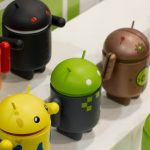
Google I/O starts tomorrow, and if rumors are right -- and I believe them -- developers get a big peak at the 7-inch Nexus tablet. About a month ago, I asked how much would you pay for one. Now with more details available, I ask if you will buy the Google device.
The Nexus tablet, manufactured by Asus, features a 7-inch IPS LCD display with 1280 x 800 resolution; 1.3 GHz quad-core Tegra 3 processor, 1GB RAM; 1.2-megapixel front-facing camera; near field communications; and Android 4.1 "Jellybean". There are two capacities, 8GB and 16GB, selling for $199 and $249, respectively. This information comes from a leaked training manual that Gizmodo Australia obtained. The big differentiator is price. As I explained in April, "Google isn't trying to save Android tablets but kill Kindle Fire".
Nexus 7 tablet rumors all point at Amazon's growing Android dominance
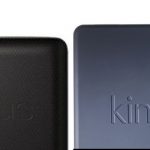
The existence of a 7-inch Google-branded Android tablet has been rumored for a couple of months, and Asus has proudly taken credit for manufacturing the device. Still, the specifics have not be officially laid out, so we have to rely on unnamed sources and ambiguous evidence for the next few days until Google I/O begins.
Reportedly, some "training materials" uncovered by Gizmodo Australia related to a tablet known as the "Nexus 7" provide some confirmation to prior rumors of an Asus-made Google Tablet, similar to the MeMO 370T that was debuted by Asus earlier this year.
Would you believe Android tablet adoption is even with iPad?
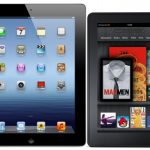
I surely don't. Perhaps even I am too influenced by all the pro-Apple propaganda. But the figures come from a reasonably reliable source, Online Publishers Association, which puts US iPad adoption at 52 percent and Android at 51 percent. Okay, I'll pause so you can wipe off coffee, or whatever else just spit out, from your computer screen.
The numbers don't add up to 100 percent, because some people own more than one type of tablet. Android gains largely come from Kindle Fire, which share is 32 percent -- four times new iPad and one point more than the original. Year over year, overall Android penetration rose from 32 percent, while iPad's fell from 72 percent. Perhaps it's no coincidence Android rose by 19 points and iPad fell by 20.
Would US consumers choose iPad mini over Kindle Fire?

Rarely does a ChangeWave consumer buying survey offer so many intriguing topic possibilities. Interest in Kindle Fire has collapsed, only 7 percent of respondents plan to purchase a new tablet within 90 days, those buying overwhelmingly choose iPad, but interest in a smaller Apple tablet is fairly modest.
Buying intention surveys are often misleading. What people would like to do often isn't what they will when time comes to pay up. With that caveat, the survey -- 2,893 consumers last month -- bodes ill for Kindle Fire or prospective iPad mini. In November, 22 percent of respondents said they would buy Kindle Fire, but only 8 percent in May. Meanwhile a mere 3 percent of respondents would very likely buy iPad mini.
Samsung accounts for 40% of Android smartphone sales

The figure is so important, I'm breaking it out from the long analysis posted mid-afternoon about the smartphone market consolidating around Apple and Samsung. The South Korean electronics giant is doing to Android on smartphones what Amazon does on tablets: Hugely fragment the market around a forked operating system. I warned about this three weeks ago in post "Google has lost control of Android". Now there is sales data to back it up.
Earlier today, Gartner released first quarter sales data for global handsets. Not shipments into the channel, but actual sales to end users. Market leader Samsung accounted for 40 percent of all Android smartphone sales, with no other manufacturer topping 10 percent. Sure Samsung's success lifts overall Android smartphone share -- 56.1 percent up from 36.4 percent a year earlier. But what's good for Samsung isn't necessarily in the best interests of the broader Android ecosystem.
Google has lost control of Android
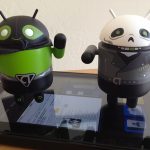
There was great news on the Android front this week. Samsung reported blow-out earnings, with smartphones -- the majority running Android -- accounting for nearly three-quarters of profits. Meanwhile comScore data spotlights the growing US Android tablet market. Additionally, Google started selling Galaxy Nexus direct, with no carrier contract, for $399. But all three share something in common -- what they foreshadow. Google has lost control of Android, and must swiftly act to regain it.
Forrester Research predicts that proprietary Android will surpass the Google Android ecosystem by 2015. Stated differently, Google's open-source mobile platform risks fracturing into multiple fatally fragmented Android ecosystems. Not one but many. There is little time for Google to demonstrate decisive leadership that can keep the ecosystem largely intact.
Amazon fixed one of the most broken things about Kindle Fire, now it needs to fix the rest

For a platform that was built to handle text documents, Amazon Kindle's support for non Kindle-formatted files has been nothing short of atrocious.
Wirelessly sending documents to a Kindle required that they be emailed to a Kindle email address where they'd be converted and sent to the user's Kindle library; or they could be uploaded directly to Kindle e-readers or tablets via USB, but with spotty usability.
Google Drive: perfect for a 'Nexus Tablet' that takes on Kindle Fire
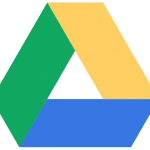
Google on Tuesday finally rolled out the long-rumored Google Drive cloud storage platform to compete with the likes of Dropbox, Skydrive, Box, iCloud, and all the rest.
But let's put cloud storage competition aside for a moment. When Google Drive was announced, I was immediately reminded of a recent quote in the New York Times:
Amazon rolls out in-app billing in Android apps, catches up to Google Play
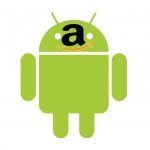
Amazon on Tuesday launched in-app billing in its Android App Store, allowing developers to include for-pay content upgrades, subscriptions, and other purchase-driven features to their applications. The feature comes exactly one year after Google introduced in-app billing in the Android Market (now known as Google Play.)
Data from mobile app analytics company Flurry last year suggested that mobile games based on the "freemium" model earned two-thirds of all the revenue of the top 100 games. This business model is based on giving away the game, and keeping it free to play, but earning money through in-app purchases such as add-ons and content expansion packs.
Google isn't trying to save Android tablets but kill Kindle Fire

Rumors about Google's forthcoming tablet are increasing, which astounds me -- as they portray this as something new. Hey, Google already formally stated it would produce an Android tablet. The rumormongers have got the reasons wrong, too. Google isn't gunning for Apple but Amazon.
The retail giant is by far the biggest competitive threat standing before Android today. Amazon has customized Android, released its own hardware, ditched Google's browser for its own Silk, established a viable app store alternative to Google Play and created a curated user experience that rivals Apple's. In just one quarter, Amazon's Kindle Fire jumped ahead of all other Android tablets, putting it second to iPad. Every Kindle Fire sold is one more brick in the wall blocking the success of the broader Android ecosystem.
Amazon's Android App Store hits one year mark: 1000% growth since Kindle Fire launch

Leading Web retailer Amazon.com has declared the Ides of March to be the beginning of its Android App Store's anniversary. The app store launched one year ago with approximately 4,000 different applications available for download, and it has grown to more than 31,000 at the end of its first year.
A major push for Amazon's Android content delivery platform came in September with the launch of the Kindle Fire Android tablet. The device is closely tied to a user's Amazon account, and the interface revolves around the Amazon ecosystem, with the MP3 shop/cloud player, Kindle reader app and bookstore, Amazon Video on Demand, and Amazon Prime.
Android rules the world?

Analysts love to make predictions. It's a no-risk gambit, because the forecasts are years away and nobody remembers if they're wrong. After thrice predicting that Windows Phone would beat out Apple's iOS by 2015, IDC has another for the same year: Android media tablet shipments will exceed iPad. By that reckoning, the firm predicts that Google's mobile OS will dominate the two major cloud-connected -- post-PC, if you insist -- device categories (the other being smartphones).
"As the sole vendor shipping iOS products, Apple will remain dominant in terms of worldwide vendor unit shipments", Tom Mainelli, IDC research director, says. "However, the sheer number of vendors shipping low-priced, Android-based tablets means that Google's OS will overtake Apple's in terms of worldwide market share by 2015. We expect iOS to remain the revenue market share leader through the end of our 2016 forecast period and beyond".
Google Nexus tablet in six months is a year too late

Google Executive Chairman Eric Schmidt has told an Italian newspaper that the company would release a Nexus tablet within six months. Google's sudden turnabout on releasing a signature Android tablet may reflect his confidence that regulators will approve the Motorola acquisition and concern about Amazon coming to dominate the Android tablet market.
Six months is way late in a market overrun by tablets -- more than 100 -- but with just a handful pulling meaningful sales. Apple's iPad 2 is the market leader by huge margin, according to IDC. In second quarter, iPad media tablet share, based on shipments, was 61.5 percent. Second-ranked Samsung: 5.6 percent. There's no question Google should have released a tablet -- that's past tense -- as in six months ago instead of six months from now. Year ago would have been even better.
Recent Headlines
Most Commented Stories
BetaNews, your source for breaking tech news, reviews, and in-depth reporting since 1998.
Regional iGaming Content
© 1998-2025 BetaNews, Inc. All Rights Reserved. About Us - Privacy Policy - Cookie Policy - Sitemap.